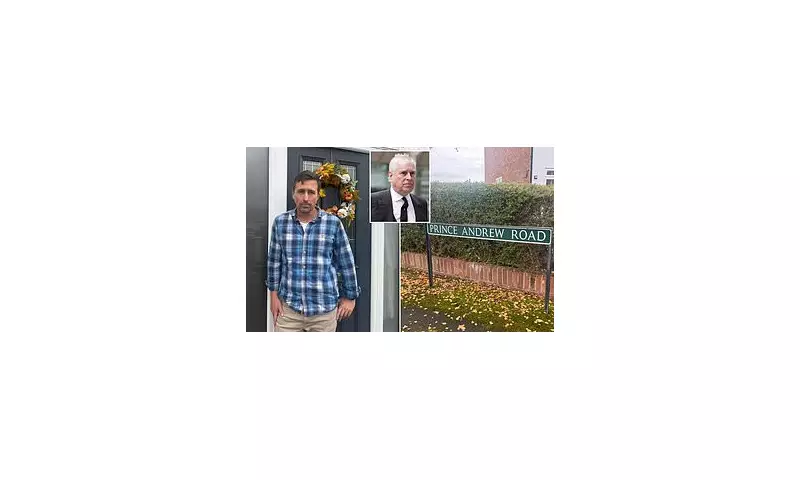
Royal Street Names Cause Neighbourhood Rift
Families residing on streets named after the disgraced Prince Andrew find themselves in a state of limbo, caught between personal feelings and a little-known bureaucratic rule. The issue centres on Prince Andrew Road and the neighbouring Prince Andrew Close in the Berkshire town of Maidenhead.
The streets were originally named in 1960 to mark the birth of Queen Elizabeth II's third child. For decades, the leafy suburban roads, situated just six miles from Windsor, carried their regal names without controversy. However, the situation changed dramatically after King Charles stripped his brother of his military affiliations and royal patronages, and the Duke of York was forced to relinquish his HRH style.
A Street Divided: The Residents' Verdict
The growing scandal surrounding Prince Andrew's association with convicted sex offender Jeffrey Epstein has left the community deeply split. The strength of feeling on the matter is significant, creating a clear divide among those who call these streets home.
Office manager Jack Dawson, 33, who has lived on Prince Andrew Road for a year, is clear in his view. "I'd say just get rid of the Andrew bit, maybe just call it Prince Road or something," he stated. "When I moved in I did think the name was a bit dodgy. And it's just got worse... I'm very concerned people wouldn't live here because of the name. We might want to sell in a few years and it'll go down in value as a result."
This sentiment is echoed by Susan Clarke, 81, a resident for an impressive 48 years. "I have thought long and hard and changed my mind a few times about it," she admitted. "I think we just need to get rid of it. We need a fresh start... Now I think there's too much strong feeling against it for it to remain. It needs to change."
Not everyone agrees, however. Sunny Joshi, 51, believes the name should remain, primarily due to the practical complications of a change. "It's a very embarrassing name now," she conceded. "I totally oppose what he did. The fact we have a road named after him is rubbish. It's really bad. But I just think there are things named after very bad people that are still up and running... I think it would cost taxpayers money to have them removed and I don't agree with that."
Michael Collins, 67, observed that the situation is becoming "heated." He explained, "The whole thing is casting a cloud over everybody. It's dividing opinion... People have very passionate views. I personally think keep it how it is, it'd be a right headache I think if it changed."
The Bureaucratic Hurdle: A Rule from 2022
Changing a street name is far from a simple process. Thanks to regulations established in 2022 under Boris Johnson's government, a significant hurdle exists. For a street name to be officially changed, two-thirds of the people who live or run a business on that road must agree to the alteration.
This rule complicates matters immensely for residents like Mr Dawson and Mr Collins, as achieving such a consensus appears unlikely given the current divided opinions. The administrative burden is also substantial, involving updates to the Land Registry, property records, passports, driving licences, and notifications to all utility companies and emergency services.
The controversy is not confined to Maidenhead. In Norwich, residents living on Prince Andrews Close and Prince Andrews Road have reported incidents of vandalism, with street signs being defaced. District councillor for Hellesdon North West, Shelagh Gurney, investigated a potential name change there but found similar financial and bureaucratic concerns deterring residents, despite a desire to dissociate from the Duke.
The saga continues to unfold, leaving these communities grappling with a modern-day dilemma that pits their sense of civic pride against the shadow of a royal scandal, all while navigating the complex web of local government policy.





